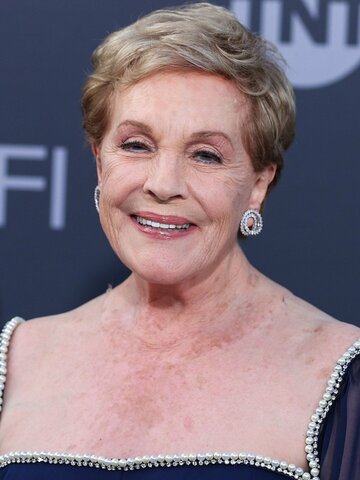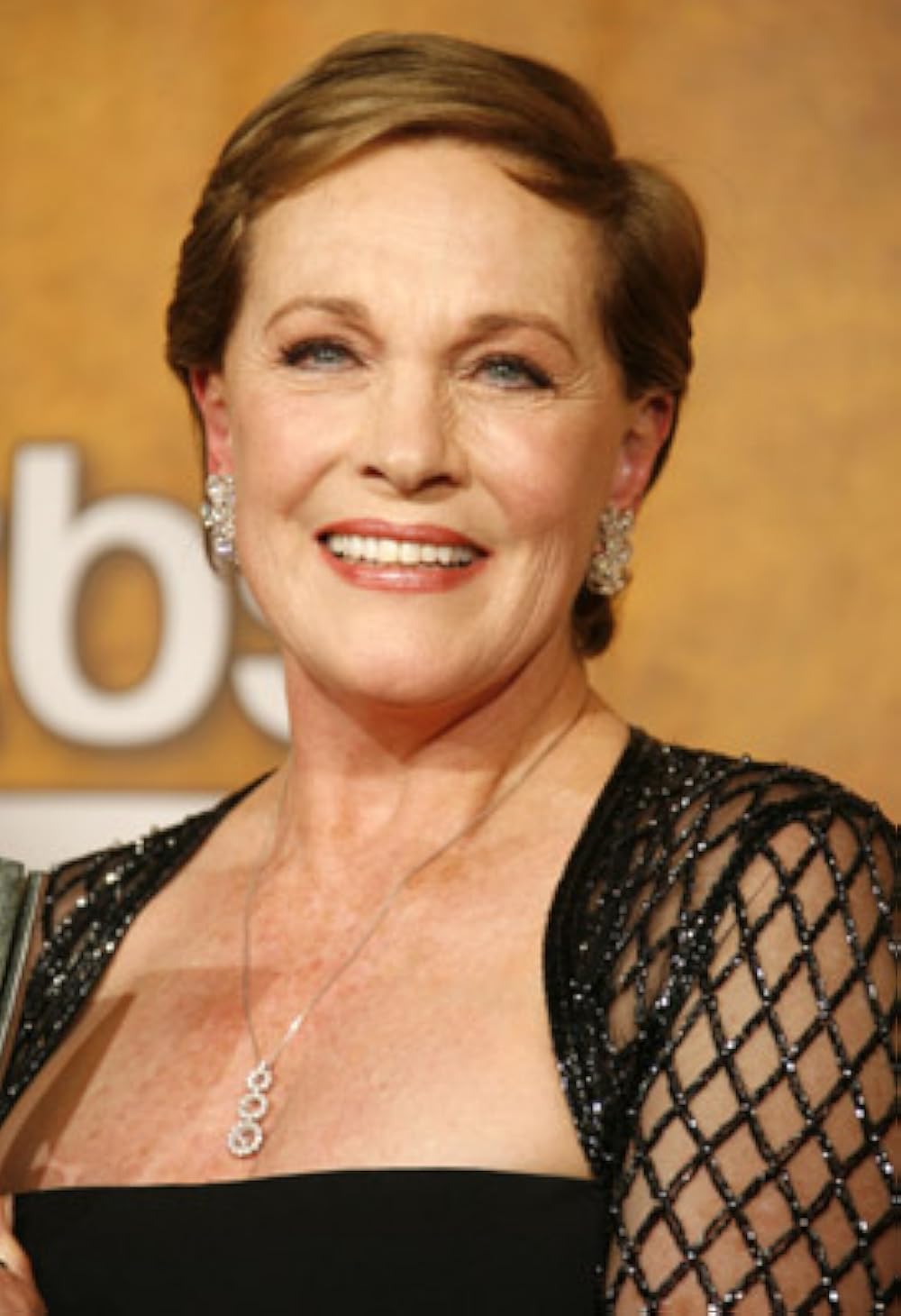In a world where fame flickers fast and attention spans are shorter than ever, it’s rare—almost miraculous—for a figure to remain beloved across generations. But Julie Andrews, who just celebrated her 90th birthday on October 1st, 2025, is more than just a rare star. She is an enduring symbol of grace, talent, resilience, and that certain kind of magic that defies time. She is part of our childhoods, our family traditions, our emotional landscapes—and as she marks this milestone birthday, the world rises to its feet in a collective standing ovation.
Even those who have never seen The Sound of Music or Mary Poppins can feel her impact, woven into the fabric of pop culture. From Broadway stages to London music halls, Disney classics to Netflix narration, Dame Julie Andrews has done it all—and somehow managed to make it look effortless. But behind the crystalline voice, the warm British poise, and that iconic smile lies a story of ambition, heartbreak, reinvention, and unyielding love for the arts.
Born Julia Elizabeth Wells in Walton-on-Thames, Surrey, in 1935, her childhood was complicated and often challenging. Her stepfather was abusive, and though she began singing early, her gift was not merely inherited but sharpened by necessity. At just 13 years old, she was performing opera at a level most adults couldn’t dream of. By the time she reached 19, Julie had already taken the West End by storm and was making waves in America.
Her breakthrough in the U.S. came on Broadway in 1956, when she originated the role of Eliza Doolittle in My Fair Lady. Audiences were stunned not just by her vocal control, but by the wit and intelligence she brought to the role. It was clear even then: this wasn’t just a pretty soprano with a charming accent. Julie Andrews had a magnetic presence, one that could carry a story, a stage, even a movement. She was cast again in Camelot alongside Richard Burton, further cementing her as a theater darling.
Then came Hollywood. And with it, immortality.
It’s easy now to look back at Mary Poppins (1964) and see it as an inevitable success. But at the time, it was a gamble. Andrews had never acted in a film before. She’d been passed over for the movie version of My Fair Lady—a devastating blow. Yet when Walt Disney saw her on stage, he didn’t hesitate. He knew he’d found someone extraordinary. With her impeccable diction, comic timing, and that near-supernatural singing voice, Andrews brought Mary Poppins to life in a way that forever redefined the character. Her performance earned her the Academy Award for Best Actress, and a place in cinematic history.
The following year brought The Sound of Music (1965), a film so deeply woven into global consciousness it feels like folklore. As Maria von Trapp, Andrews was luminous—spirited, vulnerable, nurturing, fierce. The film, bursting with music and moral clarity, became an international phenomenon. For many, it was the first movie they ever saw. For others, a yearly tradition, passed from parent to child. Through her role, Andrews didn’t just play a governess; she became the heart of a generation.
What’s remarkable is not just how deeply loved these performances are, but how much they hold up. Watch them today, 60 years later, and you’ll still find layers of emotional depth, sly humor, and emotional intelligence. That’s the magic of Julie Andrews—she was never just a symbol of sweetness. There’s always been a subtle complexity to her roles, a flash of steel behind the charm.
Yet even icons are human. And in 1997, Andrews suffered a blow that could have ended her career entirely. A botched vocal surgery left her without the soprano voice that had defined so much of her life. For someone whose identity was wrapped so closely around her singing, it was a devastating loss. But Andrews didn’t crumble. She evolved.
She turned toward narration and voice work, lending her dignified tones to documentaries, children’s books, and, more recently, to the wildly popular series Bridgerton, where she voices the mysterious and gossipy Lady Whistledown. The irony isn’t lost on fans—Julie Andrews, so associated with prim British elegance, now delivering scandalous high-society gossip? It’s perfect. And she knows it. That’s another reason she continues to resonate: she has a wicked sense of humor and an uncanny ability to surprise.
Beyond performance, Andrews has also become a respected author, both of memoirs and children’s books. Her autobiography, Home, published in 2008, offered a raw and honest glimpse into her early life. It revealed a woman shaped not only by opportunity and privilege, but by pain, conflict, and tenacity. She didn’t write it to bask in nostalgia, but to tell the truth. And it’s that integrity that people have always sensed in her, even if they couldn’t quite name it.

As she turns 90, Andrews finds herself more revered than ever. The world may have changed drastically since she first stepped onto a stage, but the need for her kind of light hasn’t. There’s a comfort in her presence, but also a challenge—to keep going, to adapt, to find purpose no matter the circumstance. In that sense, she’s not just a performer. She’s a guide.
The tributes this year have been extensive. Film retrospectives, orchestral concerts, social media celebrations—all honoring her immense contribution to entertainment and culture. A special event in Dublin this November will see the RTÉ Concert Orchestra perform a musical tribute to her legacy, a fitting celebration for someone whose influence spans continents and generations.
What makes this moment particularly poignant is the dual anniversary: not only is Julie Andrews turning 90, but 2025 also marks the 60th anniversary of The Sound of Music. For fans, it’s a beautiful convergence—a chance to revisit what she’s given the world while she’s still here to receive the love.
Andrews herself has remained remarkably grounded. In interviews, she often speaks with humility, crediting her collaborators, praising young talent, and never shying away from her mistakes. She doesn’t seek to be mythologized. In fact, she often deflects grand praise with a wry smile or a self-deprecating remark. But the truth is, she is larger than life. Not because she asked to be, but because she gave us so much—so consistently, and with such grace.
It’s hard to think of another figure who has meant so much to so many for so long. Ask someone in their 70s what Julie Andrews means to them, and they’ll tell you about seeing Mary Poppins in a theater as a child. Ask someone in their 40s, and they might talk about watching The Sound of Music on TV every Easter with their family. Ask a teenager today, and you’ll hear about Lady Whistledown, or even Queen Clarisse Renaldi from The Princess Diaries.
She’s not just an actress or a singer. She’s a symbol—of elegance, yes, but also of determination, reinvention, and kindness.
That’s what sets her apart in a crowded world of celebrities. Julie Andrews never chased attention. She earned admiration. She didn’t try to reinvent herself every decade to stay relevant—she evolved with honesty and creativity. And in doing so, she built a legacy that doesn’t just endure. It expands.
As candles were lit on her 90th birthday cake, the world lit up too. Not just in celebration of a birthday, but in gratitude for a life so richly lived, so generously shared. Julie Andrews at 90 isn’t just a reminder of how much she’s given us. It’s a call to reflect on what grace, talent, and perseverance can look like in a human life.

So here’s to Julie Andrews—an icon, a survivor, a storyteller, and a light that’s never dimmed. The hills may be alive with the sound of music, but the heart of that music has always been her.










